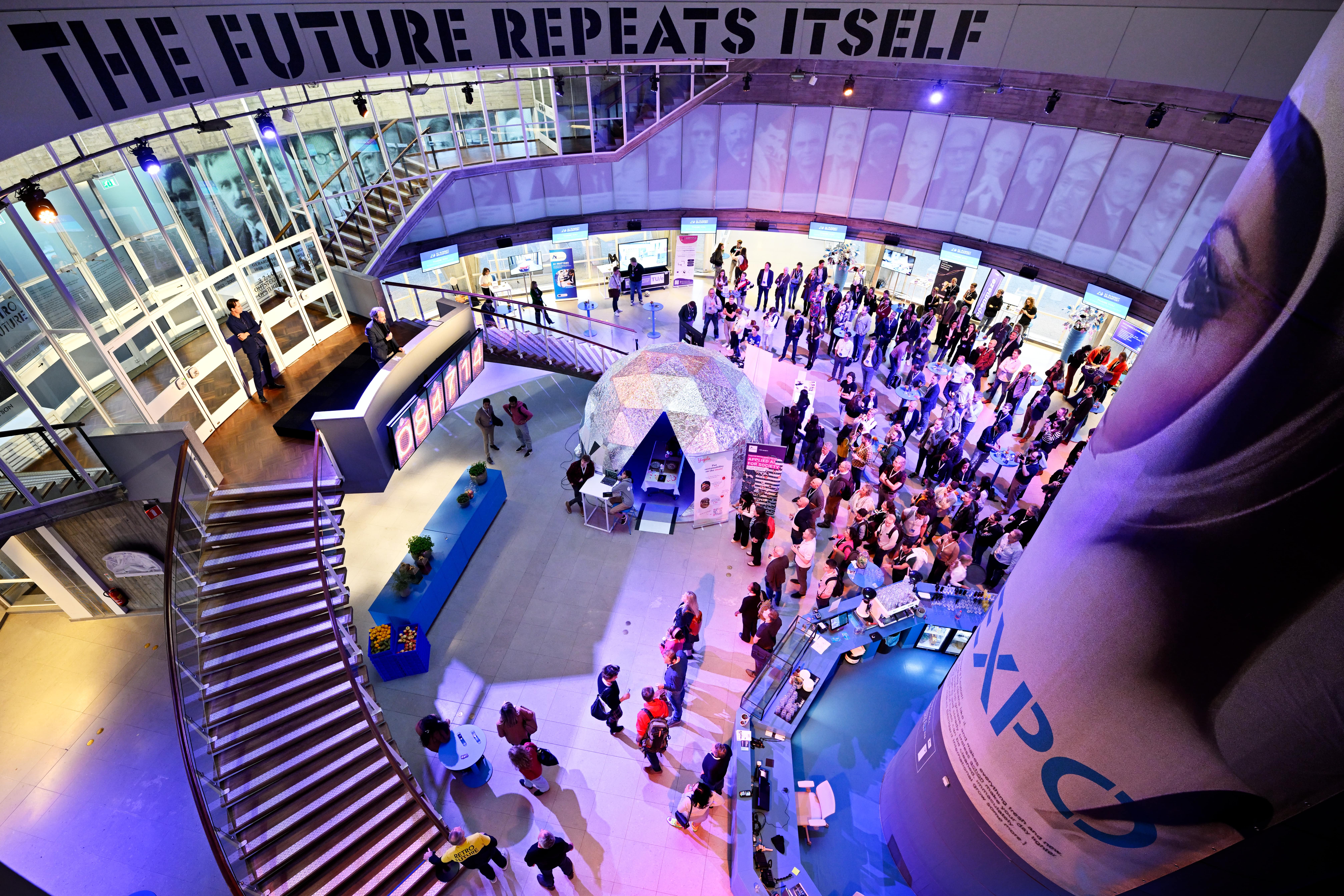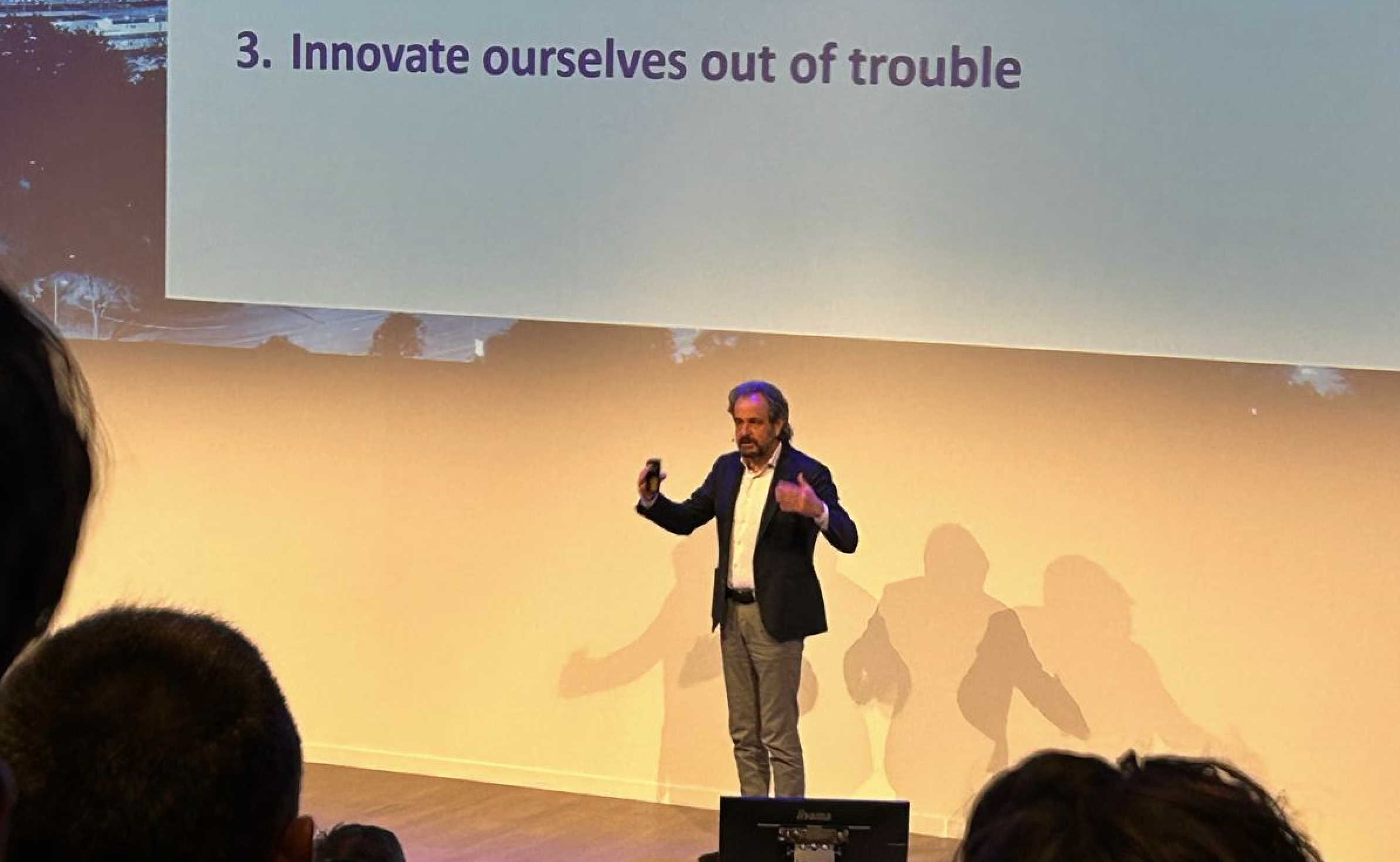
Wiro Niessen, professor of Medical Imaging at Erasmus Medical Center and Delft University of Technology (TU Delft), received the Simon Stevin Master Prize in 2015 for a disease-predicting computer. Even back then, you could see that the use of Artificial Intelligence (AI) was increasing exponentially, says Niessen. “It has turned into a huge movement. That award was a portent of a revolution in healthcare.”
Simon Stevin Meester prize
The Simon Stevin Master Award was an honorary title that was awarded to prominent technical-scientific researchers at Dutch universities and para-university institutes until 2017. A lump sum of half a million euros was allotted to it. Since 2018, the Netherlands Organisation for Scientific (NWO) has been granting the Stevin Premium, in addition to the Spinoza Premium. The Stevin premium is an individual-orientated research grant and aims to stimulate and appreciate the utilization of knowledge along with social impact.
According to Niessen, the breakthrough of AI was triggered by the tremendous success of deep learning methods in classifying images during the ImageNet international competition in 2012. Niessen: “Back then, AI was used to identify which trees or flowers were in an image. The AI revolution has also made its way into healthcare on a grand scale for that very reason.”
In his work in radiology and image recognition, Niessen analyzes large amounts of medical images, from CT and MRI scans. “Back in 2015, the focus was on what you can learn from that data. For example, what is the relationship between what you see and the outcome of a treatment. With that, you can then predict the likelihood of a treatment being successful.”
Optimal treatment
AI models can help ensure that health in the future is approached proactively rather than reactively. Niessen: “You can identify risk factors and thereby promote a healthy lifestyle. For patients, AI enables more accurate diagnoses and prognoses to be made. That way, you can optimize treatment for the individual patient and avoid over- or under-treating.”
Early detection is important for some diseases. Which is why there are already screening programs for breast cancer or colon cancer, for instance. “There is a lot to be gained through early detection. If we have a relatively cheap, non-harmful method of detecting diseases at an earlier stage, enormous health savings can be made. Especially if an effective treatment method is also available at such a stage.” Niessen’s research in 2015 focused mainly on predicting cardiovascular and neurodegenerative diseases, such as Alzheimer’s disease. Today, the group is also developing several applications within oncology.
The work field has expanded in comparison to 2015, Niessen says. “Back then, we were mainly analyzing image data. Nowadays, we are increasingly combining that data with other kinds of data. Take, for example, genetic data, lifestyle and environmental factors. This allows us to gain much better insight into factors that determine health and disease.” Recently, researchers from Niessen’s group published a framework for analyzing genetic data using AI.
A healthcare system that learns
Technology is becoming increasingly important in medicine too, Niessen adds. “I work at both the Erasmus MC and TU Delft. For many years, I have been bringing in technical people to Erasmus MC to utilize technology for better medical care. You see that this is becoming more and more commonplace.” For example, Erasmus MC, together with TU Delft and Erasmus University Rotterdam (EUR), has ambitions to become a Technical University Medical Center. “Techniques like AI are becoming more and more important for the future of healthcare. You can see that within the Dutch AI Coalition, for instance, the domain of health and care is booming.”
It is not just academic research into algorithms in healthcare that is on the rise. Companies are also increasingly learning more from patient data. Take Philips, which is focusing more and more on a data-driven healthcare system, according to Niessen. Not just Philips, but other small and larger companies as well. Stemming from Erasmus, the spin-off Quantib also uses AI for medical imaging.
“You could say that we are all working towards a healthcare system that continues to learning as it goes along. Where you continually collect people’s data and you make the connection between that data and health in order to care and treat future patients more effectively.”
Privacy
Niessen envisions a health environment where all personal data is accessible. “The doctor uses it to offer insights into my health and my risk of becoming ill. Or on the status of my pathology, which means if my disease is progressing or not.” In this respect, security of personal data plays a vital role. “That data, of course, should not be viewed indiscriminately. Just like our financial data. A doctor may only use data about my health if there is a medical treatment relationship. If the data is going to be used for scientific research, then permission needs to be granted.”
Since the ability to learn from data is so important to Niessen, he is also now involved with Health-RI. This is a Dutch initiative aimed at creating a national health data infrastructure. More than 70 organizations in health research and care are involved. “Such an infrastructure is a sine qua non for high quality AI research in healthcare. If we are unable to learn from patient data then we cannot build a predictive computer that ultimately improves people’s health.” Earlier this year, Health-RI received a €69 million investment from the Dutch National Growth Fund to make health data more accessible for health research and innovation.
Extension
“We are progressing step by step. I compare the development of AI in healthcare to that of the mobile phone. The iPhone 13 is so many times better than the first phones where you still had to press physical keys for text. You have to introduce new techniques in medicine and keep on learning and improving all the time.”
Just as the smartphone has actually become an essential tool in how we function in our daily lives, so too can these technical tools become an extension of the physician. Niessen: “At present, AI techniques mainly perform specific tasks. I foresee that in the future, doctors will also be able to ask AI systems questions. This will provide them with a kind of smart assistant. People will also take on a more proactive role by understanding their own data and the AI models. The doctor then becomes more of a consultant., who then looks at the data together with the patient and interprets the data.”








